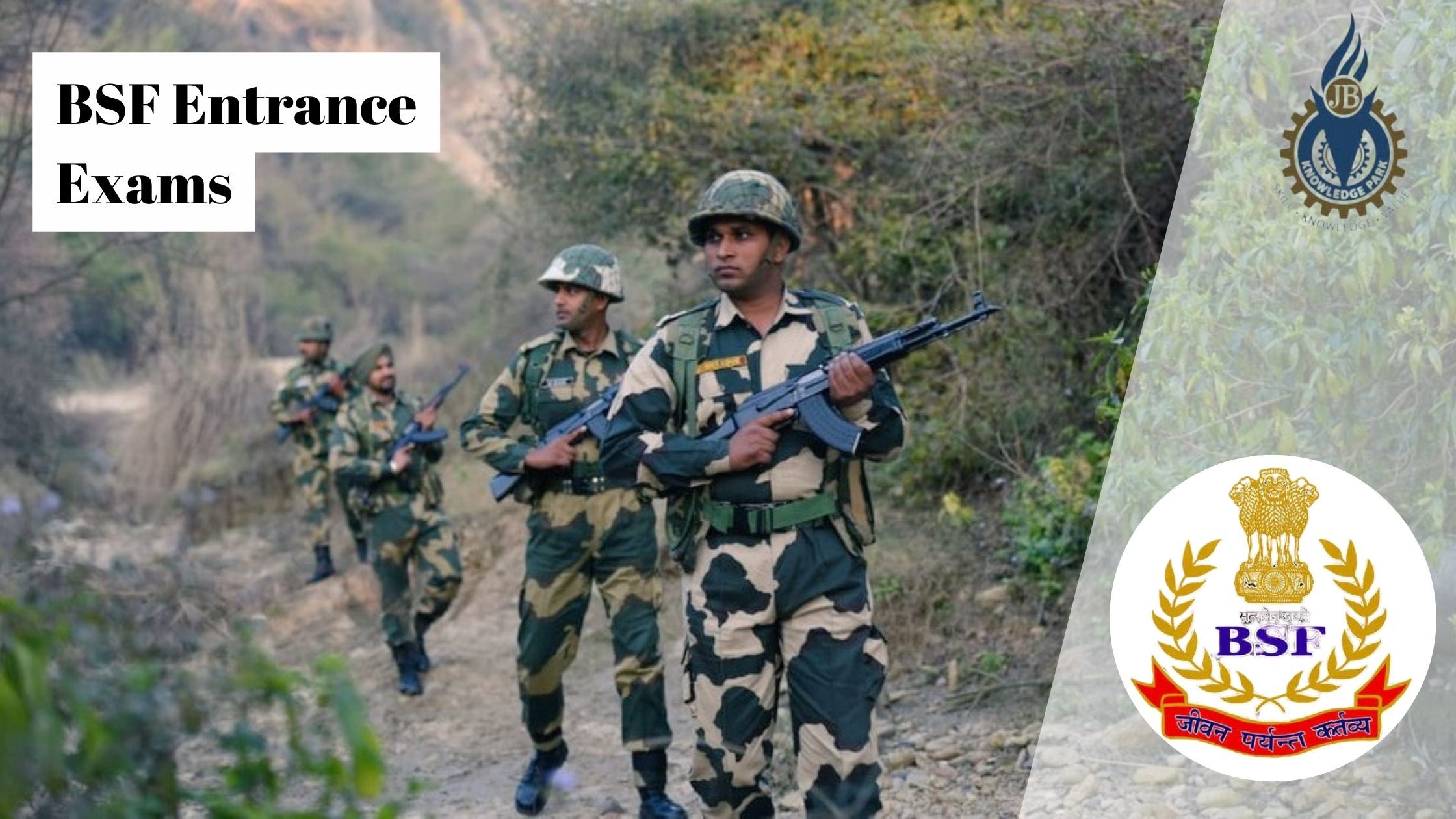Introduction to BSF Entrance Exams
The Border Security Force (BSF) is one of India’s most prestigious paramilitary forces, responsible for safeguarding the country's borders and ensuring national security. Every year, thousands of aspirants apply for the BSF entrance exams, aiming to join this elite force and serve the nation. The recruitment process is highly competitive and requires candidates to meet strict eligibility criteria and clear multiple stages of assessment.
The BSF entrance exam is conducted for various posts, including Constable, Sub-Inspector (SI), Assistant Commandant, and other technical and non-technical roles. The selection process includes a written examination, physical tests, medical tests, and a personal interview. Understanding the complete details of the BSF entrance exams, including eligibility criteria, exam pattern, syllabus, and preparation strategies, is crucial for aspirants who want to secure a position in the force.
In this blog, we will provide a comprehensive guide to the BSF entrance exams, covering the eligibility requirements, application process, exam structure, syllabus, preparation tips, and more. This will help aspiring candidates understand the recruitment process and prepare effectively for the examination.
Eligibility Criteria for BSF Entrance Exams
To apply for the BSF entrance exam, candidates must meet specific eligibility criteria, including educational qualifications, age limits, and physical standards.
Educational Qualification
- For Constable Posts: Candidates must have completed their 10th or 12th standard from a recognized board.
- For Sub-Inspector (SI) Posts: A bachelor’s degree from a recognized university is required.
- For Assistant Commandant (AC) Posts: A graduation degree in any discipline is necessary.
- For Technical Posts: Candidates should possess a diploma or degree in engineering or a related field.
Age Limit
- For Constable Posts: 18-23 years (age relaxation for reserved categories as per government rules).
- For SI and AC Posts: 20-25 years.
- For Technical Posts: Age limits vary based on the specific role and qualifications.
Physical Standards
- Height: Minimum 170 cm for males and 157 cm for females (relaxation for certain categories and regions).
- Chest (for males): 80 cm (unexpanded) and 85 cm (expanded).
- Weight: Proportionate to height and age.
Selection Process for BSF Recruitment
The BSF entrance exam consists of multiple stages to assess the physical and mental capabilities of candidates. The selection process includes:
- Written Examination
- Physical Efficiency Test (PET)
- Medical Examination
- Personal Interview
- Document Verification
1. Written Examination
The written examination includes objective-type questions across multiple subjects. The exam pattern may vary based on the post applied for.
Exam Pattern for Constable and SI Posts
- General Awareness & General Knowledge – 25 marks
- Reasoning Ability – 25 marks
- Numerical Aptitude – 25 marks
- English/Hindi Language – 25 marks
Exam Pattern for Assistant Commandant Posts
- Paper 1: General Ability & Intelligence
- Paper 2: General Studies, Essay, and Comprehension
- Paper 3: Professional Knowledge (for technical roles)
2. Physical Efficiency Test (PET)
Candidates who qualify for the written examination must clear the PET, which includes:
- Running: 1.6 km in 6.5 minutes (males), 800 meters in 4 minutes (females)
- Long Jump: 11 feet (males), 9 feet (females)
- High Jump: 3.5 feet (males), 3 feet (females)
3. Medical Examination
The medical test ensures candidates are physically and medically fit to serve in the BSF. Key requirements include:
- No visual impairments
- No chronic illnesses
- Overall physical fitness
4. Personal Interview
For higher posts such as SI and Assistant Commandant, candidates must appear for a personal interview where their personality, leadership skills, and knowledge about national security are evaluated.
Syllabus for BSF Entrance Exam
Understanding the syllabus is essential for effective preparation. The major subjects include:
1. General Awareness
- Current affairs
- Indian history and geography
- Polity and constitution
- Science and technology
2. Reasoning Ability
- Verbal and non-verbal reasoning
- Coding-decoding
- Syllogism
- Blood relations
3. Numerical Aptitude
- Basic arithmetic
- Data interpretation
- Algebra and geometry
- Percentage and profit-loss
4. English/Hindi Language
- Grammar and comprehension
- Synonyms and antonyms
- Sentence correction
How to Prepare for BSF Entrance Exams
Clearing the BSF entrance exam requires a strategic approach. Here are some guidance to help candidates prepare effectively:
1. Understand the Exam Pattern and Syllabus
Go through the official syllabus and exam pattern to plan your study schedule accordingly.
2. Practice Previous Year Papers
Solving past question papers will help candidates understand the difficulty level and improve their time management skills.
3. Focus on Physical Fitness
Regular exercise, running, and strength training are essential to clear the PET.
4. Take Mock Tests
Attempting mock tests will improve speed and accuracy in solving questions.
5. Stay Updated with Current Affairs
Reading newspapers and watching news channels will help candidates stay informed about current events, which is crucial for the general awareness section.
BSF Admit Card and Exam Date
The BSF admit card is released a few weeks before the examination. Candidates can download it from the official BSF website using their registration details. The exact exam dates vary each year, and aspirants must check the BSF website for the latest updates.
BSF Result and Merit List
After the completion of all selection stages, BSF releases the final merit list of selected candidates. The merit list is based on performance in the written exam, PET, medical test, and interview.
Conclusion: Key Takeaways for BSF Aspirants
Joining the BSF is a dream for many individuals who wish to serve the nation with pride and dedication. The BSF entrance exam is highly competitive, and candidates must prepare thoroughly to secure a position in the force.
To increase your chances of success:
- Understand the exam pattern and syllabus.
- Prepare systematically with mock tests and previous year’s papers.
- Focus on physical fitness to clear the PET.
- Stay updated with current affairs and general knowledge.
By following a structured preparation strategy, aspirants can successfully clear the BSF entrance exam and embark on a rewarding career in border security.
Also, Visit Defence 2025 Exam







